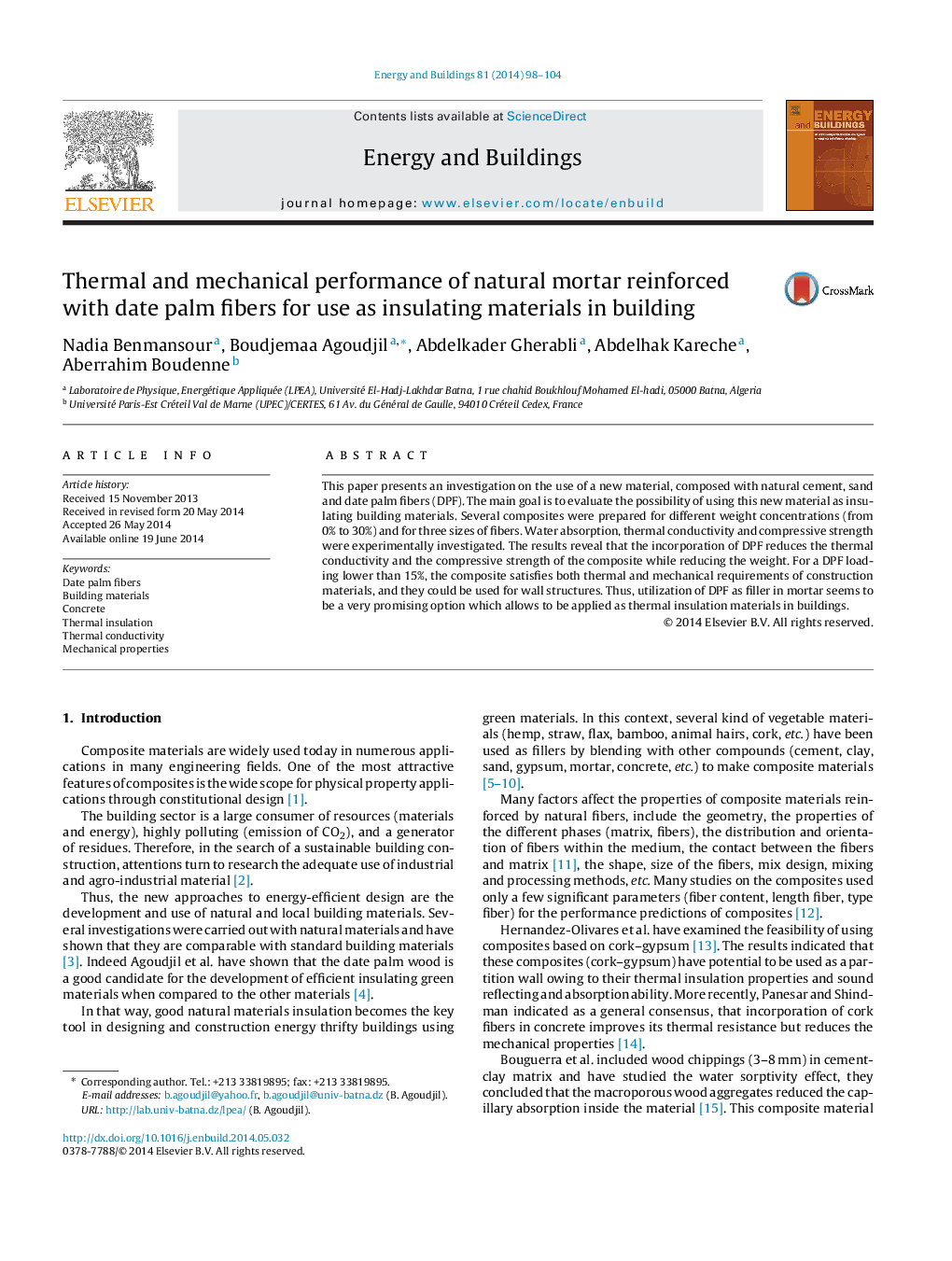| Article ID | Journal | Published Year | Pages | File Type |
|---|---|---|---|---|
| 262819 | Energy and Buildings | 2014 | 7 Pages |
•Thermophysical and mechanical properties of mortar reinforced with DPF.•Effect of DPF content, sizes on thermal and mechanical properties of composites.•Effect of the moisture on thermal properties of composites.•Good thermal conductivity and compressive strength for low fiber content.•Mortar/DPF biocomposite could be used for walls and other building components.
This paper presents an investigation on the use of a new material, composed with natural cement, sand and date palm fibers (DPF). The main goal is to evaluate the possibility of using this new material as insulating building materials. Several composites were prepared for different weight concentrations (from 0% to 30%) and for three sizes of fibers. Water absorption, thermal conductivity and compressive strength were experimentally investigated. The results reveal that the incorporation of DPF reduces the thermal conductivity and the compressive strength of the composite while reducing the weight. For a DPF loading lower than 15%, the composite satisfies both thermal and mechanical requirements of construction materials, and they could be used for wall structures. Thus, utilization of DPF as filler in mortar seems to be a very promising option which allows to be applied as thermal insulation materials in buildings.
